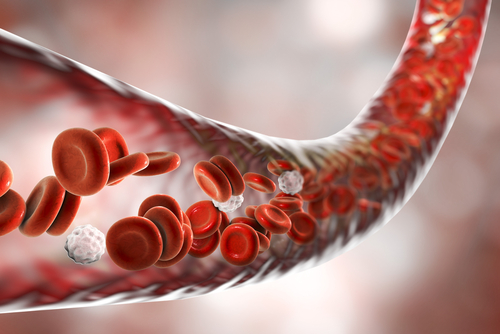Women with endometriosis have high serum levels of the commonly-used plasticizer diethylhexyl phthalate (DEHP), suggesting a contributing role for DEHP in the mechanisms that lead to the development of endometriosis.
The study with that finding, “Women Diagnosed with Endometriosis Show High Serum Levels of Diethyl Hexyl Phthalate,” was published in the Journal of Human Reproductive Sciences.
Phthalate esters, more commonly known as plasticizers, are compounds that often are added to consumer products to increase the products’ durability and longevity. These products are included in household furnishings, cosmetics, perfumes, food packaging, medicine, and insecticides, for example.
Phthalate esters also tend to disrupt the endocrine (hormonal) system. Hence, long-term exposure to these compounds — particularly DEHP — has been linked to reproductive problems in humans.
“Human exposure to DEHP is primarily through processed food, contaminated from food processing machines and packaging materials and dermal application of personal care and cosmetic products,” the authors wrote.
Interestingly, studies have revealed that plasma (blood) and urinary levels of DEHP and its metabolites (products of these compounds’ processing within the body) are significantly higher in women with endometriosis compared to healthy control participants, which suggests phthalate esters play a role in the mechanisms that lead to the development of endometriosis.
In order to gain a deeper understanding about the role of DEHP in endometriosis, researchers set out to study levels of DEHP in women with endometriosis and women without the condition.
Researchers studied 50 women who were diagnosed with endometriosis, aged 20-40 years, as well as 50 age-matched healthy, fertile women. Researchers then measured levels of serum (a protein-rich component of blood) DEHP.
Levels of DEHP in healthy women were undetectable.
Conversely, researchers were able to find detectable levels of DEHP in all patients with endometriosis. In fact, the average value of DEHP in patients with endometriosis was 65.29 ng/ml.
Comparison of DEHP levels among different stages of endometriosis revealed an increasing trend as disease stage increased, particularly in stages III and IV. Hence, patients with advanced endometriosis are more likely to have higher levels of DEHP.
Researchers also conducted an age-based analysis to determine whether age plays a role in regulating DEHP levels. DEHP levels were not significantly different between the two age groups (20-30 and 31-40 years) of women with endometriosis.
Researchers concluded, “Taken together, our results show positive association of phthalates with endometriosis in local population.”
Additionally, “High levels of DEHP in women diagnosed with endometriosis suggest a role of phthalates in the etiology [cause] of endometriosis and permit careful use of such compounds,” they wrote.

